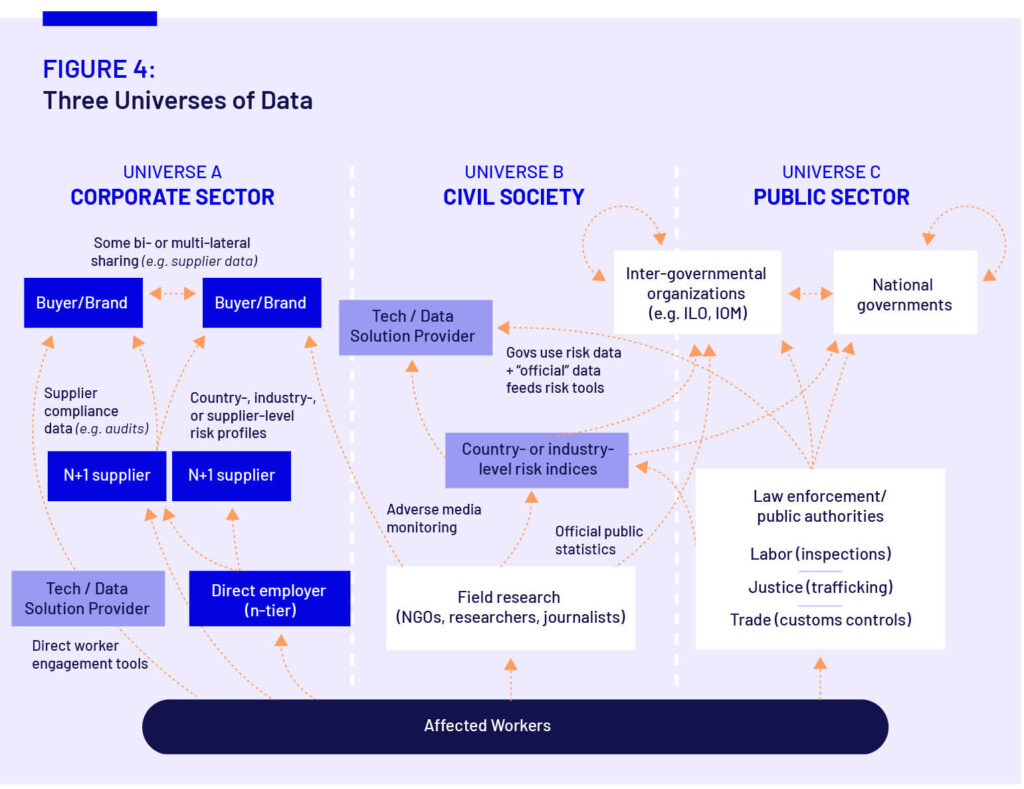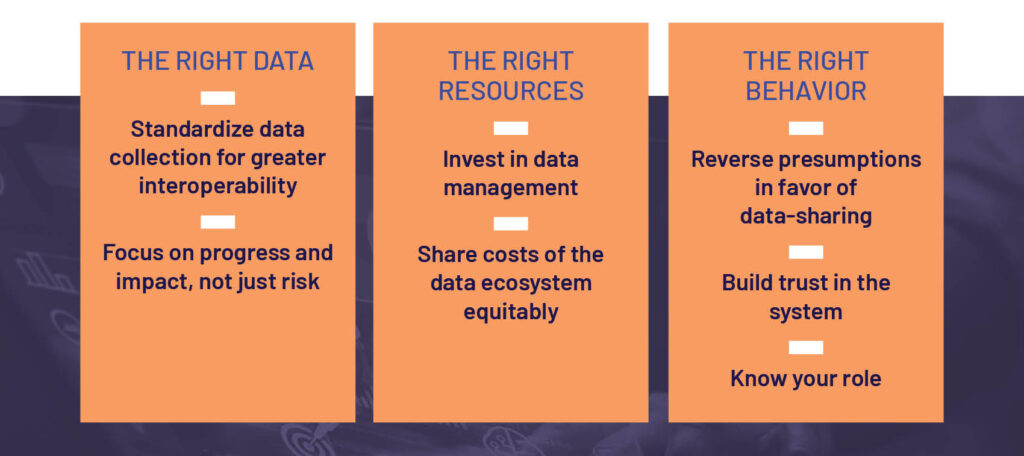Forced labor is entrenched in global supply chains, and it is often hidden at the lowest tiers of sourcing of products and services. increased regulatory pressure has led to the development of a “supply chain data ecosystem” to inform strategies to better prevent and address labor exploitation.
The supply chain data ecosystem is, however, largely fragmented with data siloes existing between—and within—the corporate sector, civil society, and the public sector. Despite an increasing amount of collected data about forced labor risks, the value and impact of that data is not being fully realized.
Through a comprehensive research, Tech Against Trafficking, through its BSR Secretariat have identified 7 principled recommendations to business, policy-makers and civil society to enable an effective supply chain data ecosystem where data is shared at greater scale and for greater impact.
A Fragmented Supply Chain Data Ecosystem
Our research confirmed that the supply chain data ecosystem is fragmented, with significant data siloes between—and within—three universes: the corporate sector, civil society and the public sector.

Toward A More Effective Supply Chain Data Ecosystem
Looking ahead, we envisage a more effective supply chain data ecosystem built around a federated or decentralized network of relationships where different actors collect and process data in a relatively harmonized manner, and are able to connect with each other directly or via data hubs. As this network of connections grows, and trust builds, more data will flow around the system, at greater scale, and for greater impact.
To achieve this future vision, we identify 7 areas for action by all actors involved. These are: the right data, the right resources, and the right behaviors.


